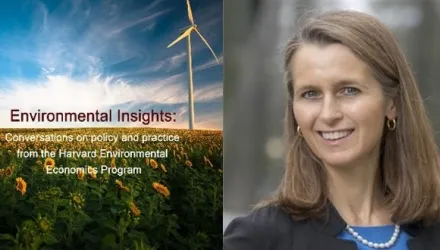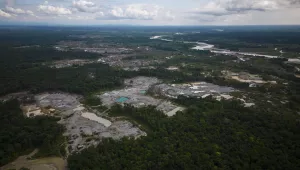Introduction
Because forests play a critical role in the global carbon cycle, the international community is actively pursuing policies and programs to increase the amount of carbon stored in forests. Recent estimates suggest that forestry could contribute an average 6.7 billion tons of emissions reductions annually, with over two-thirds of this potential coming from tropical nations.3 Making full use of the forest carbon sink is appealing to both the developed and the developing world. Developed nations see forest carbon projects as a low-cost option for mitigating climate change. For the developing world, forest carbon payments could provide a sustainable source of much-needed income. At the most recent climate negotiation talks in Copenhagen, even as negotiations on greenhouse gas emissions limits stalled, the parties moved closer to a framework agreement on forest carbon.4 Five donor nations have committed $3.5 billion to jump-start a program to reduce emissions from, and increase carbon sequestration in, the world’s forests.5
Parties to the UNFCCC have considered a wide range of policy options to address forest carbon.6 However, no single approach has been selected by the parties. Whichever approach is ultimately chosen, it will also require the international community to develop institutional support mechanisms. To identify the key services and institutions that will be needed to support a successful IFCS program, this paper will examine three possible international forest carbon sequestration (IFCS) models: a fund-based approach, proposed by Brazil7; a market-based approach submitted jointly by several rainforest nations;8 and the Forest Program for Inventories of National Carbon (PINC) approach, which focuses on rewarding a broad range of countries for increases in national carbon stocks.9 While these three approaches share the same overall goal, they are structured in different ways, and their need for support services will differ as well.
The basic types of support services under any IFCS program will be similar — support will be needed during the initial negotiations, both for program design and for individual countries decisions whether to participate; managing financial transactions; providing oversight of the entire program, including dispute resolution and enforcement; measuring and verifying carbon stocks; and ensuring developing country readiness to enter a program.10 Within these basic categories, however, different IFCS programs will have different needs. For example, some programs will need more support in the negotiation process than in the enforcement process. A market-based IFCS program will need different kinds of financial transaction support than a fund-based program. These differences suggest not only different support service needs, but also different institutional options for delivery of support services.
This paper proposes that the success of any IFCS program will depend in large part upon the institutional design of its support services. A successful IFCS program must be supported by services and institutions that maintain its effectiveness, maximize its political viability, and minimize its transaction costs. To achieve these goals, the provision of these services should be based upon the available delivery options, the characteristics of each service and the overall goals of the IFCS program.
For example, the support service of measuring carbon stocks might be provided by individual nations, private contractors, or by quasi-governmental international bodies. Each party will approach the task with a different set of capabilities and incentives: individual nations have close proximity to data, but may be tempted to overestimate carbon stocks; private contractors may work quickly, but require extensive and costly contracting; international bodies may produce highly accurate data, but provide little transparency and raise controversial questions about national sovereignty. The relative weight of these advantages and disadvantages should be matched to the needs of the IFCS program. The effectiveness of some IFCS programs will depend upon measurement accuracy, while under others transparency or timeliness might be most necessary.11 Because the different IFCS programs have different needs, the institutional arrangements that will be most successful will also differ, depending on the IFCS program that is ultimately chosen.
This paper examines key considerations for organizing support institutions under an IFCS program. Since the international community has not yet chosen a specific IFCS option, this paper will not recommend one set of support institutions over another. Instead, it will 1) identify the key characteristics of the support services needed under each of three possible IFCS options; 2) suggest possible institutional arrangements for these support services, considering both existing and new institutional arrangements; and 3) discuss the key advantages and disadvantages of each arrangement identified.
Liz Baldwin
School of Public and International Affairs
Indiana University
USA
Kenneth R. Richards
School of Public and Environmental Affairs
Indiana University
USA
Baldwin, Liz and Kenneth R. Richards. “Institutional Support for an International Forest Carbon Sequestration Agreement.” August 2010


